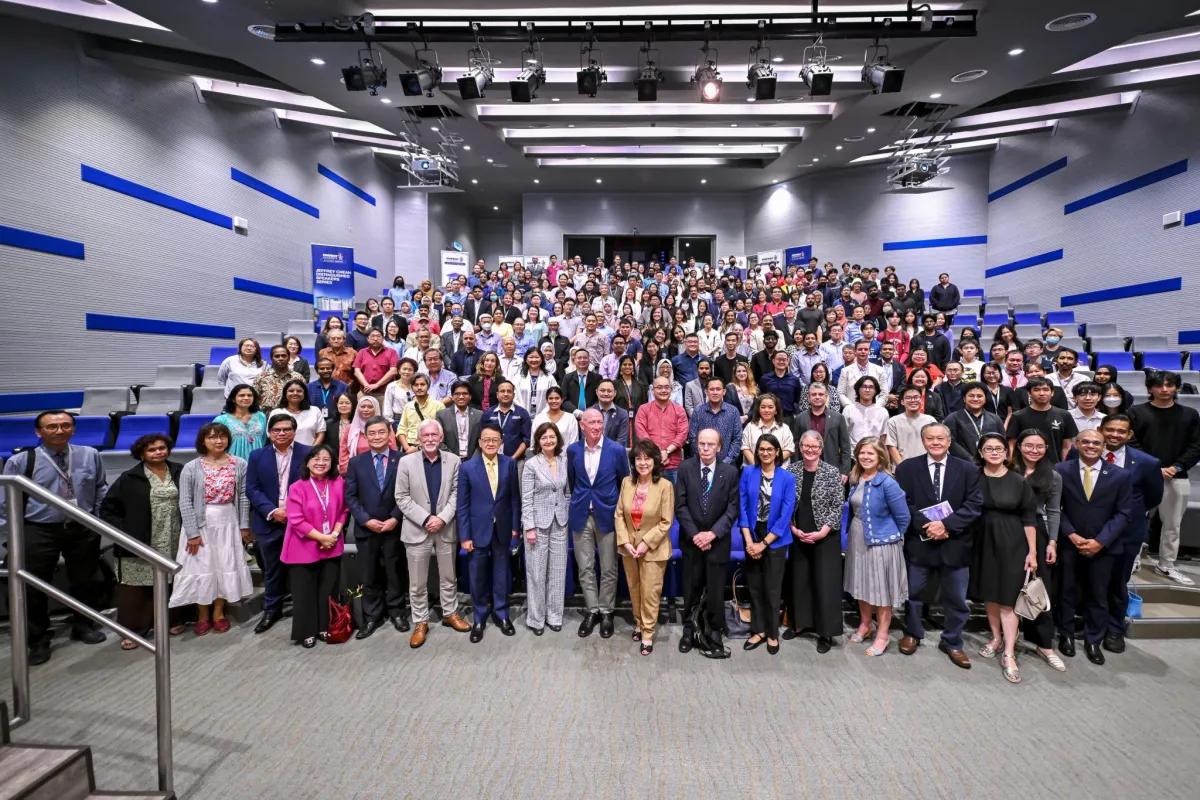Future Challenges for Global Universities
My colleagues and I recently attended a Jeffrey Cheah Distinguished Speakers Series featuring Deborah Prentice, a vice-chancellor from the University of Cambridge.
A full room of students and academics joined this session at JC Auditorium, Sunway University, which highlights the speaker’s experiences of leading the university and posits the big question, “What next for global universities?”
Prentice started her speech by quoting a question asked to the late Senator Daniel Patrick Moynihan of New York, “How to build a great city?” to which he replied, “Create a great university and wait 200 years”.
This statement undoubtedly holds a great deal of truth. There is a top university in every major city, and a goal shared by all great educational institutions is to elevate the city in which they are housed to a great level.
In her capacity as a psychology professor, Prentice started her academic journey by learning how to use psychology to change people’s behaviours in pluralistic communities.
She is specifically fascinated by how the human system, which is a university, works and wants to make it better for the community.
What does it mean for a university to contribute to a great community? This is worth exploring questions to investigate for everyone who has an interest in universities.
If we go back to Moynihan’s statement, there is a sad irony that many universities have felt conflicted or worse about the cities where they are situated over time.
Some built obstacles to keep strangers out, such as walls, to define their space. Some maintained an intellectual detachment from the society they lived in, believing that engaging with the real world would compromise their aspirational scholarly investigations.
That is why the ivory tower has come to be associated with universities, which is hardly a friendly attitude towards the people they serve.
Prentice provided examples of the US vs. UK higher education landscape. While both share the same values in terms of academic attitude, scholarship, and economic contributions, the former has a healthier regulatory system than the latter.
In reality, global universities face challenges in the form of a globalised environment, decreasing values, financial constraints and political interests. For that reason, great cities and great universities have to be related. However, far too frequently, that relationship has been chilly and aloof.
Nonetheless, things are changing. To fulfil their core institutional missions, universities are making a significant shift from the ivory tower to the engaged campus.
Providing values, solutions
This is because they recognise that two-way engagement is necessary for the campus to feel accessible to the local community and for staff and students to view the entire region as a classroom and laboratory.
During the COVID-19 pandemic, universities proved their values and referred to provide solutions to the problem for the betterment of the world community.
Each university has its own role to contribute to the society. Universities that make these kinds of contributions will have a long and prosperous future because they are meeting the needs of the market today.
Universities must serve, engage, and invest in communities in ways that are mutually beneficial and sustainable because, as anchor institutions, they are indispensable to the communities in which they are embedded.
Is higher education institution still relevant in today’s globalised and artificial intelligence world? I believe that it is still the best model that can contribute to society.
In this essence, universities must foster interdisciplinary, culturally diverse communities on campus where students may engage with real people and real issues in real-time. Only then will knowledge be advanced, and the most difficult problems in the world can be solved.
Future paths are now more uncertain, but whether they are large or small, the universities of the future that act accordingly will prosper and contribute to the development of the great cities of the future.
Universities that fail to adapt in these ways run the risk of failing to survive in the future. Hence, universities must embrace innovation, technology, and globalisation to stay relevant and competitive in the rapidly changing landscape of higher education.
As technology continues to advance, universities must adapt their curriculum to meet the demands of the digital age and provide students with the skills they need to thrive in a rapidly evolving job market.
Embracing sustainability practices and preparing students for tomorrow's workforce will also be key factors in ensuring long-term success for universities in the future.
Finally, universities should foster partnerships with industry, invest in research and development, and prioritise student success so that they can focus on creating a diverse and inclusive environment to attract top talent and foster creativity and collaboration.
This article was written by Sunway University's own Dr Ahmad Faizuddin and featured in the Letters section of Malaysiakini. The link to the original article is available below.




